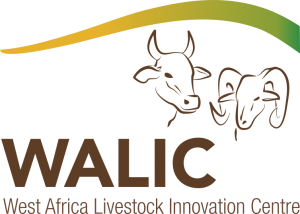
Basic Information on PROGEBE
The Regional Project for Sustainable Management of Endemic Ruminant Livestock in West Africa (PROGEBE) is born of the will of the Gambia, Guinea, Mali and Senegal to Senegal to preserve and enhance the productivity of their endemic ruminant livestock.
Due to population pressure, drought and anthropic action (deforestation, agriculture, bushfires etc.), genetic traits of trypanotolerant livestock breeds are under increasing threat of extinction or dilution. Their habitat is also increasingly being invaded by exotic livestock breeds and converted into agricultural lands with generalized deforestation due to high fuel wood demand.
Therefore, PROGEBE aims at preserving and strengthening in a sustainable manner the genetic traits of three priority endemic livestock, species (Ndama cattle, Djallonké sheep, and the West African Dwarf goat), increasing its productivity and exploitation within an enabling physical and institutional environment. About two and a half million inhabitants in the participating countries will benefit from the project.
The project is mainly funded by the African Development Bank (AfDB), the Global Environment Facility (GEF), the Governments of member countries and its partners, ITC, UNOPS, ILRI, CIRDES and FAO. It is implemented by the International Trypanotolerance Center (ITC) for the AfDB and United Nations Office for Project Services (UNOPS) for UNDP-GEF. The AfDB and UNDP-GEF components will last from 2008-2014 and 2008-2015, respectively.
The main project partners are ministries and research institutes in charge of livestock in the four member countries: ITC in The Gambia, Agricultural Research Institute of Guinea (IRAG), Institute of Rural Economy (IER) in Mali and Senegalese Agricultural Research Institute (ISRA), ILRI based in Nairobi, Kenya, CIRDES based in Bobo-Dioulasso in Burkina Faso and FAO.
The Regional Coordination Unit is hosted by ITC in Banjul. In each country, the project operates through a National Coordination Unit, based respectively at Abuko for the Gambia, Conakry for Guinea, Bougouni for Mali and Kolda for Senegal.
In each of the four countries, five intervention sites (three primary and two secondary sites for replication of the results obtained in the primary sites) have been selected. The project covers 240 villages spread over 20 sites, including 8 priority and 12 secondary sites.
Taking into account its regional dimension, the project is supervised by: a Regional Steering Committee (RSC), National Steering Committees (NSC), and Local Steering Committees (LSC)
Click here to view the PROGEBE website.
